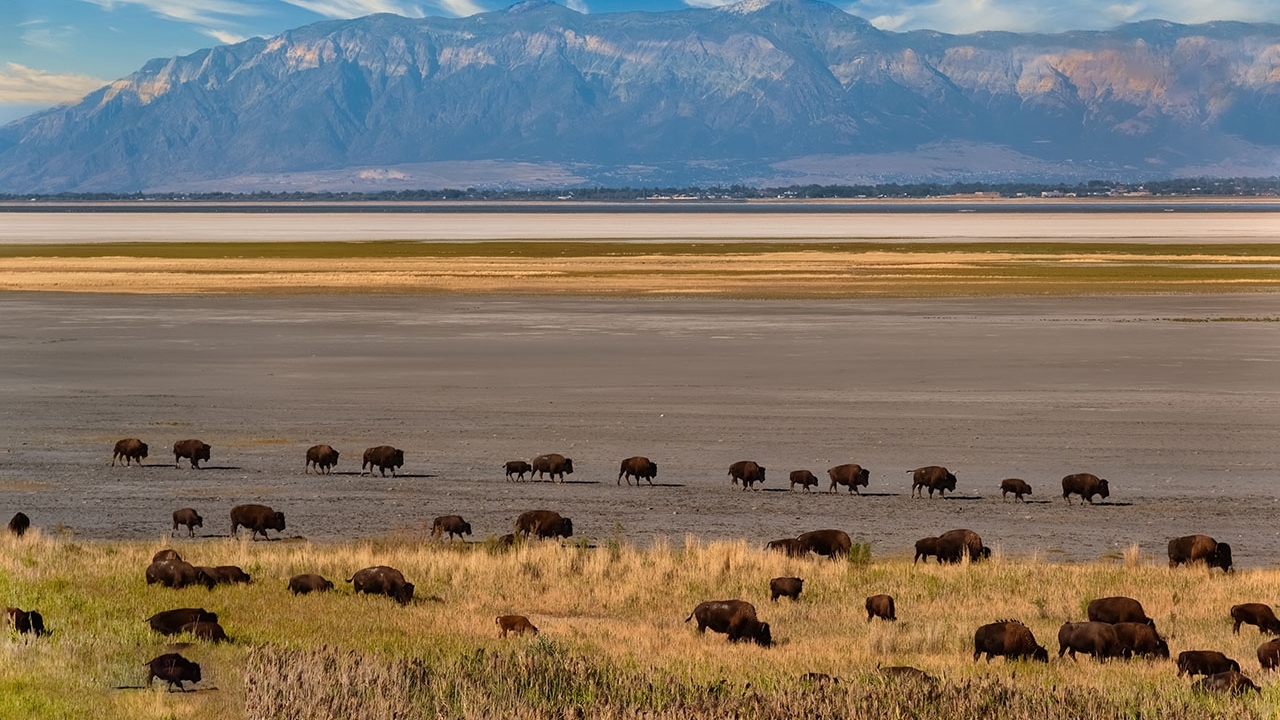About Tribal Relations

APHIS is committed to helping Native American Tribes keep their agricultural resources healthy and strong. By partnering with Native American producers, communities, and organizations, we provide a variety of services that protect animals and plants in Indian Country from harm.
Tribal Nations have the opportunity for timely and meaningful government-to-government consultation with APHIS in developing policies that may have Tribal implications. In keeping with the Presidential Executive Order on Tribal Consultation and APHIS Directive 1040.3 (131.97 KB), we work continuously to maintain strong partnerships that preserve Tribal sovereignty.
Our Services
Every operational program within APHIS can provide assistance and guidance to Tribes. Through cooperative agreements, technical and emergency training, and outreach activities, we help safeguard Tribal agricultural livestock, crops, and natural resources from disease, pests, and wildlife damage. Learn more about APHIS' programs:
- Animal Care
- Biotechnology Regulatory Services
- International Services
- Plant Protection and Quarantine
- Veterinary Services
- Wildlife Services
The APHIS Native American Working Group (ANAWG)—which includes over 100 representatives from all APHIS program areas—is an integral part of our work. ANAWG representatives are available nationwide to answer questions about our programs and discuss arrangements for assistance.
Resources
- Wildlife Services (WS) Leads Animal Health and Career Outreach Presentation to Navajo Technical University Students: On January 31, 2025, WS staff led an outreach presentation to students enrolled at Navajo Technical University at Crownpoint, NM. The presentation delivered a better understanding of WS, livestock predation, disease threats, crop losses, property damage, careers, and internships. The students were engaged and asked great questions throughout the presentation. Our objective was to share the exciting and important work we do, encourage students to apply to the Native American-Serving Institutions Internship and to inspire students to pursue a career with WS.
- With the Northwest Indian Fisheries Commission, we cohosted the first Tribal Emergency Preparedness and Response Training on Stillaguamish lands in Washington State in April 2022. The training covered Federal incident emergency response and support functions, current plant pests and animal disease threats and surveillance activities, funding opportunities, and other topics important to Tribes.
- At the 2022 Native American Fish and Wildlife Society Annual National Conference, we hosted a Tribal Biologist Workshop for Disease Detection and Surveillance. Held at the Miccosukee Tribe, in Miami, FL, participants learned how to test waterfowl for highly pathogenic avian influenza, collect samples from deer to test for SARS-CoV-2, and collect material from feral swine to test for swine diseases.
- In June 2021, we offered a virtual training on Federal Indian Trust Responsibility, the most important principle of the Government's relationship with American Indian Tribes. View the Zoom recording from this training.
There are many organizations that serve the needs and interests of Indian Country. Explore here:
- Advisory Council on Historic Preservation
- Affiliated Tribes of Northwest Indians
- American Indian Higher Education Consortium
- American Indian Science and Engineering Society
- Indian Nations Conservation Alliance
- Intertribal Agriculture Council
- Intertribal Nursery Council
- Intertribal Timber Council
- National Congress of American Indians
- Native American Fish and Wildlife Society
- Southwest Indian Agricultural Association
- United South and Eastern Tribes, Inc.
- Wisconsin Tribal Conservation Advisory Council
Visit these resources for more information on Government services and assistance for Tribes.
- USDA's Office of Tribal Relations
- U.S. Department of the Interior: Indian Affairs Office of the Special Trustee and Native American Graves Protection and Repatriation Act
- U.S. Census Bureau: Native American Population Statistics
Contact Us
Office of the National Tribal Liaison
Email: aphis-ontl@usda.gov
Stay Up to Date
For the latest news about Tribal relations, sign up for email updates.

